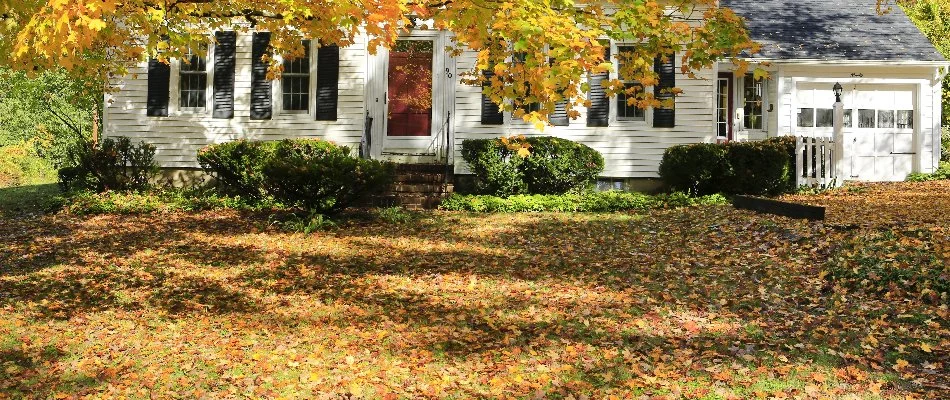As winter approaches in Iowa, it's crucial to ensure your lawn is free of debris. Leaving debris on your lawn can smother the grass, blocking sunlight and air circulation, which are essential for its health. Additionally, debris provides an ideal hiding spot for insects seeking shelter from the cold, potentially leading to infestations come spring. Moreover, debris creates a damp environment perfect for the growth of lawn diseases, further damaging your turf. To prevent these issues, consider scheduling a fall cleanup service to remove all debris before winter sets in.
Debris left on your lawn during the winter season can smother your grass.

One of the main reasons you should avoid leaving debris on your lawn during the winter season is that it can smother your grass. When leaves, twigs, and other debris accumulate on your lawn, they create a thick layer that blocks sunlight and restricts airflow to your grass. This lack of sunlight and oxygen can hinder the health of your grass and potentially cause it to die!
Leaving debris on your lawn over the winter can attract insects.
Another reason why you shouldn't leave debris on your lawn during the winter season is that it can attract insects. Many types of insects seek out warm and sheltered places to overwinter, and piles of debris provide the perfect hiding spots for them. Insects like ants, beetles, spiders, and even rodents may take refuge in the debris on your lawn, using it as protection against harsh weather conditions. Some insects can cause damage to your lawn, while others may just be one step closer to making their way into your home, which is why you'll want to remove debris to keep them away!
Debris left on your lawn over the winter can create the perfect environment for lawn diseases.
Lawn diseases thrive in environments with excess moisture and limited airflow—conditions that are often created by debris left on your lawn. When debris accumulates on your lawn, it traps moisture underneath, creating a humid environment where fungi and bacteria can flourish. Lawn diseases such as brown patch, dollar spot are common culprits that can wreak havoc on your lawn if given the opportunity to develop.
These diseases can weaken your grass, causing discoloration, thinning, and eventually leading to bare patches. Once established, lawn diseases can be challenging to control and may require extensive treatment to eradicate. Preventing their development in the first place is much easier than dealing with the aftermath. Regularly cleaning up debris from your lawn will help eliminate the conditions that promote lawn disease growth.
What should you do about debris on your lawn? Schedule a fall cleanup service!
Now that you understand the importance of not leaving debris on your lawn during the winter season, you might wonder what steps you should take to address this issue. The best course of action is to schedule a professional fall cleanup service. A fall cleanup service typically includes tasks such as leaf and debris removal and general tidying up of your outdoor space.
By investing in a fall cleanup service, you can rest assured knowing that your lawn is properly prepared for the colder months ahead. Not only will this improve the appearance of your property, but it will also contribute to the long-term health and vitality of your grass.
Give us a call today to sign up for our fall cleanup service.
At ETCH Outdoor Living, we offer a fall cleanup service that involves removing debris from your lawn so that it doesn't negatively impact your grass or attract insects. We offer this service to residential and commercial property owners, as well as HOAs, in Ankeny, Johnston, Urbandale, West Des Moines, Waukee, IA, and surrounding areas. Give us a call at (515) 735-3338 to sign up for our fall cleanup service today!



Comments (0)
Thanks for your comment!
Thanks for your feedback! Your comments have been successfully submitted! Please note, all comments require admin approval prior to display.
Error submitting comment!
There is a problem with your comment, please see below and try again.